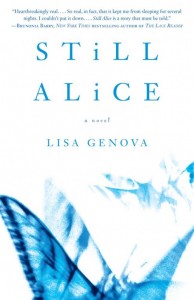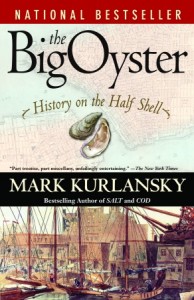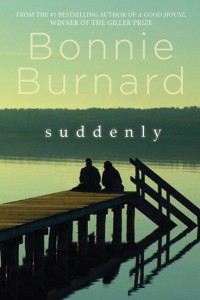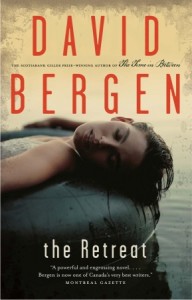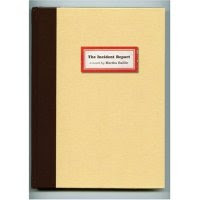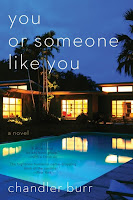 I really must confess that the last couple books have really been not up to snuff in terms of the quality of reading that I’ve been finding on my shelves — I mean, I’ve discovered some truly excellent authors I had never read before (Julian Barnes) and inhaled the backlist of others that I had come to love (Elizabeth Strout). I really wanted Turtle Valley by Gail Anderson-Dargatz to turn things around for me. Alas, it did not.
I really must confess that the last couple books have really been not up to snuff in terms of the quality of reading that I’ve been finding on my shelves — I mean, I’ve discovered some truly excellent authors I had never read before (Julian Barnes) and inhaled the backlist of others that I had come to love (Elizabeth Strout). I really wanted Turtle Valley by Gail Anderson-Dargatz to turn things around for me. Alas, it did not.
Sigh.
Turtle Valley has to be one of the most frustratingly erratic novels I have read in a long time. The narrative suffers from a distinct lack of focus and can’t really decide what it is — a ghost story, the tale of a woman’s marriage falling apart, a story of seemingly never-ending family tragedy? Instead, all of these plots and themes are muddled up together in a rushed, convoluted, awkward book that had so much promise.
But let me digress. I really loved The Cure for Death by Lightning. And, if I can remember, I enjoyed A Recipe for Bees too. Anderson-Dargatz is a talented writer, no one is denying that fact, but this is not a cohesive novel that shows off her storytelling ability. Kat, short for Katrine, arrives home to Turtle Valley with her preschool-aged (I’m imagining; his age is never given) son Jeremy and disabled husband Ezra in tow (he suffered a stroke; tragedy #1) to help her aging parents pack up their house as a forest fire rages in the area. The natural disaster provides an excellent backdrop to the story, and allows a sense of natural urgency and drama to inhabit the narrative — this is the good stuff. But where the novel falls completely apart is how Kat unravels the mysteries of her family’s past, hidden letters, hidden stories, unforgiven truths, and a ghost that haunts them all.
There’s no straight shooting in this novel. Anderson-Dargatz wants to tell things slowly but then there are places where the book just doesn’t make sense, where it would have benefited from a serious sense of grounding just so the reader can believe what’s going on. In one scene, Kat’s lifting dinner out of the oven (wha?) and then discovering her grandmother’s letters and racing off to the neighbour she once had an affair with (tragedy #2, lost love) and then suddenly the fire’s on top of them and her father’s dying (tragedy #3). Then she’s telling her older sister about a moment of tenderness between she and her husband (marital discord and eventual divorce; tragedy #4), which is a scene we READ, that had nothing to do with the retelling or any of the moments she described, and this goes on throughout the entire novel.
Far too many scenic moments and heavy-handed imagery plague the narrative (how many times can we be told about the ladybugs, how many!!!) and, in places, the dialogue is terrifically awful, and I found myself doing the patented eyerolling, yelling in my head, “people don’t talk that way!” as I was reading. The whole book would have benefited from a far more dedicated sense of time and place, and there needed to be far more attention to detail. Maybe if there wasn’t so much going on — ex-lovers and dying fathers and dead grandfathers haunting the place and half-bonkers mothers and angry husbands and ever-looming fires getting closer — the book wouldn’t feel so all over the place. In a sense, I felt overwhelmed by the trouble in the novel, by Kat’s inability to actually cope with one aspect of her life at any one time — she’s racing around like a firebug, jumping from thing to thing, and we barrel along with her, much to the novel’s disadvantage.
The real fire in the Shuswap happened in 1998 and, like I said, Anderson-Dargatz uses the event well, but I often wonder if so much tragedy feels or reads realistically — it all felt so forced: her husband’s stroke (how old was he, how did they explain the stroke, what was his prognosis, how long has he been sick, none of this is explained); their marital problems (which, of course, led to her wanting to rekindle a relationship with the hot potter next door whose own wife suffers, OF COURSE, from MS); the drama surrounding her grandfather’s death (that’s the big family mystery); her father’s cancer and her mother’s increasing dementia, that there are just too many awful things happening in this novel.
I know life is like that sometimes, terrible tragedy upon terrible tragedy, but I just didn’t get Kat. She pleads with her husband to let her in, to let her love him, and then she cheats on him; her family keeps secrets upon secrets from her, and then they spring the truth on her at the very moment the fire’s about to take all the proof away. And when they finally discover the love letters between her grandmother and her great-uncle (her mother’s mother; her father’s uncle), she races off with them even though, as I said above, she just took a pot roast out of the oven. And no one says ANYTHING. All in all, the erratic, convoluted nature of this book disappointed me throughout. I wanted to love it. I wanted to be swept away in the scenery and the shock of the fire — I wanted to believe in the ghost story, the haunting, and I wanted Kat to redeem herself by the end, but there’s too much in this novel for it to be wrapped up quickly, and yet, that’s what Anderson-Dargatz attempts to do. The end of Kat’s marriage is glossed over in one sentence, and then wrapped up awkwardly, as if it was simply a tool to insert even more drama into an already conflict-heavy, relationship-based family story.
All in all, I’m not sure how I feel about the book. I sped through it, so it definitely grabbed my attention, but I definitely expected more from this book, and this author.
READING CHALLENGES: Off the Shelf, and if I was doing a Canadian challenge, it’d be one for the books there too. I skipped the 1001 Books section of the shelves this time around, I really want to save those chunky books for the summer at the cottage, so I am trying to power through the Canadian, American, International and British sections over the winter/spring. Also, I only have one Austen left, Mansfield Park, and I don’t want to read it just yet. So I might skip the “As” and come back around to it when I’m not so disappointed in my reading. Thank goodness for Julian Barnes. I’m reading his short story collection, The Lemon Table, now and it is excellent.
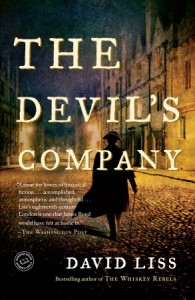 I enjoy David Liss’s novels so much. They aren’t my typical reading material — I don’t read a lot of true historical fiction (I do read a lot of literary fiction, a lot of which takes place during historical moments but, somehow, it’s not quite the same). Regardless, Liss writes rollicking adventure tales that are smart, intricate and remind me a little of the best of Charles Dickens. You never quite know what’s going to happen and you can be sure that every single detail will mean something by the time you get to the end of the book.
I enjoy David Liss’s novels so much. They aren’t my typical reading material — I don’t read a lot of true historical fiction (I do read a lot of literary fiction, a lot of which takes place during historical moments but, somehow, it’s not quite the same). Regardless, Liss writes rollicking adventure tales that are smart, intricate and remind me a little of the best of Charles Dickens. You never quite know what’s going to happen and you can be sure that every single detail will mean something by the time you get to the end of the book.